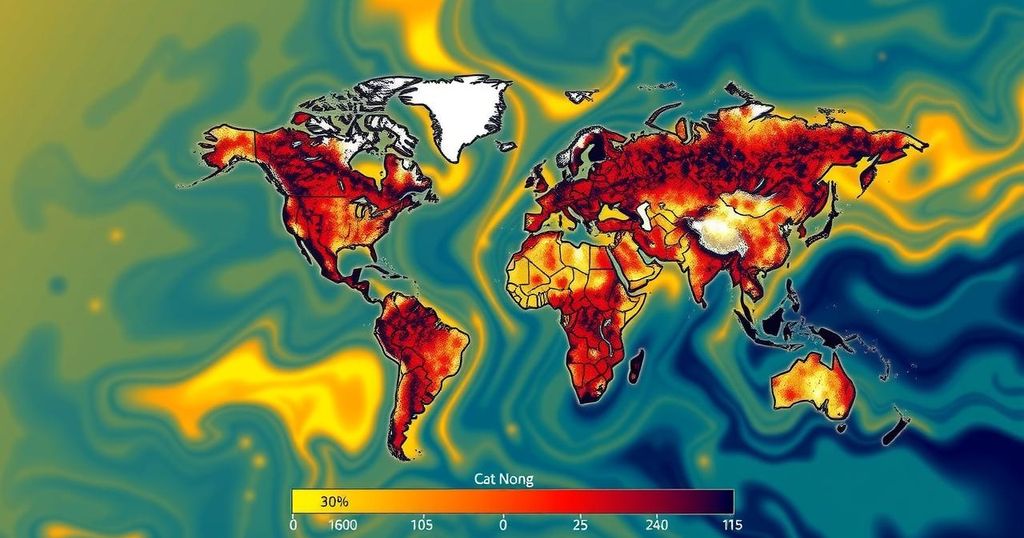The year 2024 is projected to mark the first time global temperatures exceed 1.5C above pre-industrial levels, as reported by the EU’s Copernicus Climate Change Service. This alarming milestone occurs before major climate talks led by the UN. Current global temperatures highlight an urgent call for enhanced climate action, as catastrophic weather events continue to impact lives worldwide.
According to the European Union’s Copernicus Climate Change Service (C3S), the year 2024 is projected to be the first in which global temperatures exceed 1.5 degrees Celsius (2.7 degrees Fahrenheit) above pre-industrial levels. This significant development comes just days prior to the international climate talks organized by the United Nations. The C3S has indicated that 2024 is likely to outpace 2023 as the warmest year on record, marking a pivotal moment in climate change history. In a statement, C3S deputy director Samantha Burgess highlighted the need for heightened ambition in the upcoming Climate Change Conference, COP29. The report describes the current situation as a “new milestone” in temperature records, calling for urgent action to mitigate emissions during the upcoming United Nations negotiations in Azerbaijan next week. Recent extreme weather events, including deadly floods and hurricanes, underscore the urgency of addressing climate change. UN Secretary-General Antonio Guterres expressed grave concerns regarding the rising global temperatures, stating, “Humanity’s torching the planet and paying the price,” and pointed out the tragic consequences of climate change manifesting through catastrophic events around the globe. Although the current rise in temperatures is alarming, it technically does not violate the Paris Agreement, which allows for measured temperature changes over decades rather than individual years. As global average temperatures reach alarming heights, with projections indicating potential future increases of 3.1 degrees Celsius (5.58 degrees Fahrenheit) this century under the current trajectory, experts warn that each incremental rise will lead to increasingly severe impacts. The UN has reported that funding for adaptation measures in developing countries is drastically insufficient, providing only a fraction of what is necessary for disaster preparedness. In light of these developments, immediate and decisive action is imperative to avert further climate degradation.
The warning issued by the Copernicus Climate Change Service reflects an urgent situation regarding global climate change, where ongoing temperature increases threaten to exceed critical thresholds outlined in international agreements such as the Paris Accord. With scientific consensus indicating a steep rise in global temperatures, the risk of severe environmental and humanitarian consequences looms large, complicating negotiations at international climate conferences. This landscape is further intensified by political uncertainties surrounding commitments made by major economies concerning climate action.
In conclusion, the Copernicus Climate Change Service’s projection for 2024 signifies a critical juncture in the fight against climate change, with temperatures expected to surpass the 1.5C threshold. The implications of this trend necessitate immediate and enhanced actions during the forthcoming climate negotiations. As humanity grapples with the consequences of its carbon emissions, the path forward must involve collective responsibility and renewed commitments to combat climate change effectively.
Original Source: www.aljazeera.com






